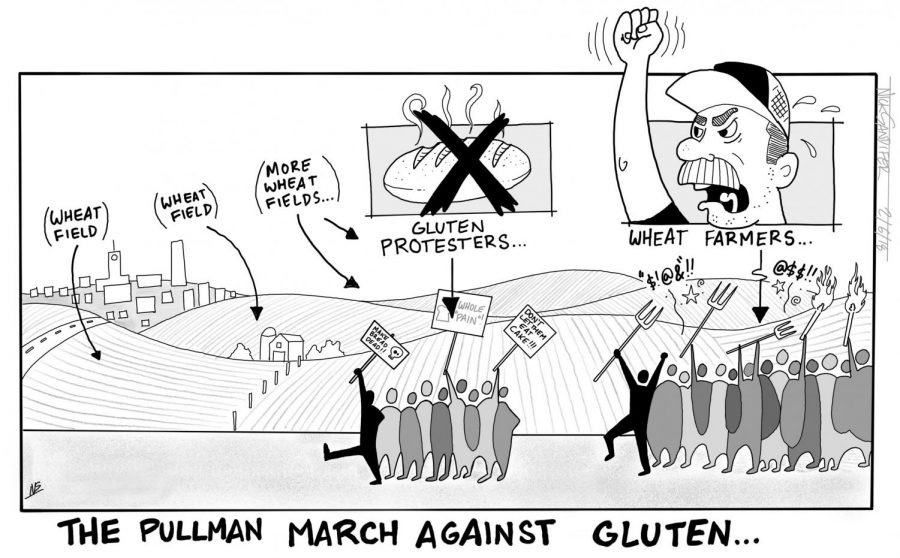Student starts movement gluten-free Pullman movement
Trend moves beyond gluten-free options, establishments
February 8, 2018
Gluten-free options have worked their way into the norm over the past few years. From stores to menu items to entire establishments, the movement to make life a little easier for those with food allergies has expanded exponentially. Now, one student wants to make all of WSU and Pullman gluten-free.
The student, who wished to remain anonymous, started the movement at the beginning of the spring semester. He first left posters around campus and later created a petition on Change.org. Measures listed on the petition include banning wheat products and ending all wheat production in Pullman. So far, the petition has over 2,000 signatures.
“I think it’s really great what he’s trying to do,” senior accounting major Yolanda Rialto said. “I’ve been gluten-free for years, and this movement would really normalize it. Especially since Pullman is such a large agricultural community.”
Rialto, knowingly or not, brought up the biggest point of contention over the gluten-free campaign: Pullman’s history in farming. Eighty percent of Washington’s crop comes from winter wheat, according to The Spokesman-Review, and WSU is a leading university in agricultural research.
Understandably, researchers and farmers alike are upset with the petition. WSU’s wheat research, which has created dozens of breeds of wheat, may be in jeopardy.
“We’ll lose a huge part of WSU’s appeal as a university if we are forced to shut down wheat research and production,” agricultural biotechnology major Sierra Wolfe said. “There’s no way to make that kind of change feasible. It’ll make life harder for so many people.”
The creator of the petition, however, is convinced otherwise.
“Look, I don’t have celiac disease or anything,” he said. “But in the spring, all this stupid pollen gets in the air and I can’t stop sneezing. I have to down Benadryl like Smarties if I want to even try to go to class.”
The student said he did some research and found grass pollens and gluten are highly cross-reactive. In the spring, eating gluten can worsen symptoms of hay fever and render a healthy student inactive. He said he considered temporarily cutting gluten from his diet each spring when he began to feel sick, but ruled out the idea.
“I couldn’t live with the shame of intentionally buying gluten-free products, especially around my peers and stuff,” he said. “I can’t have people thinking I’m some kind of horoscope-reading, yoga-obsessed health food enthusiast. I have a reputation to keep up, man.”










